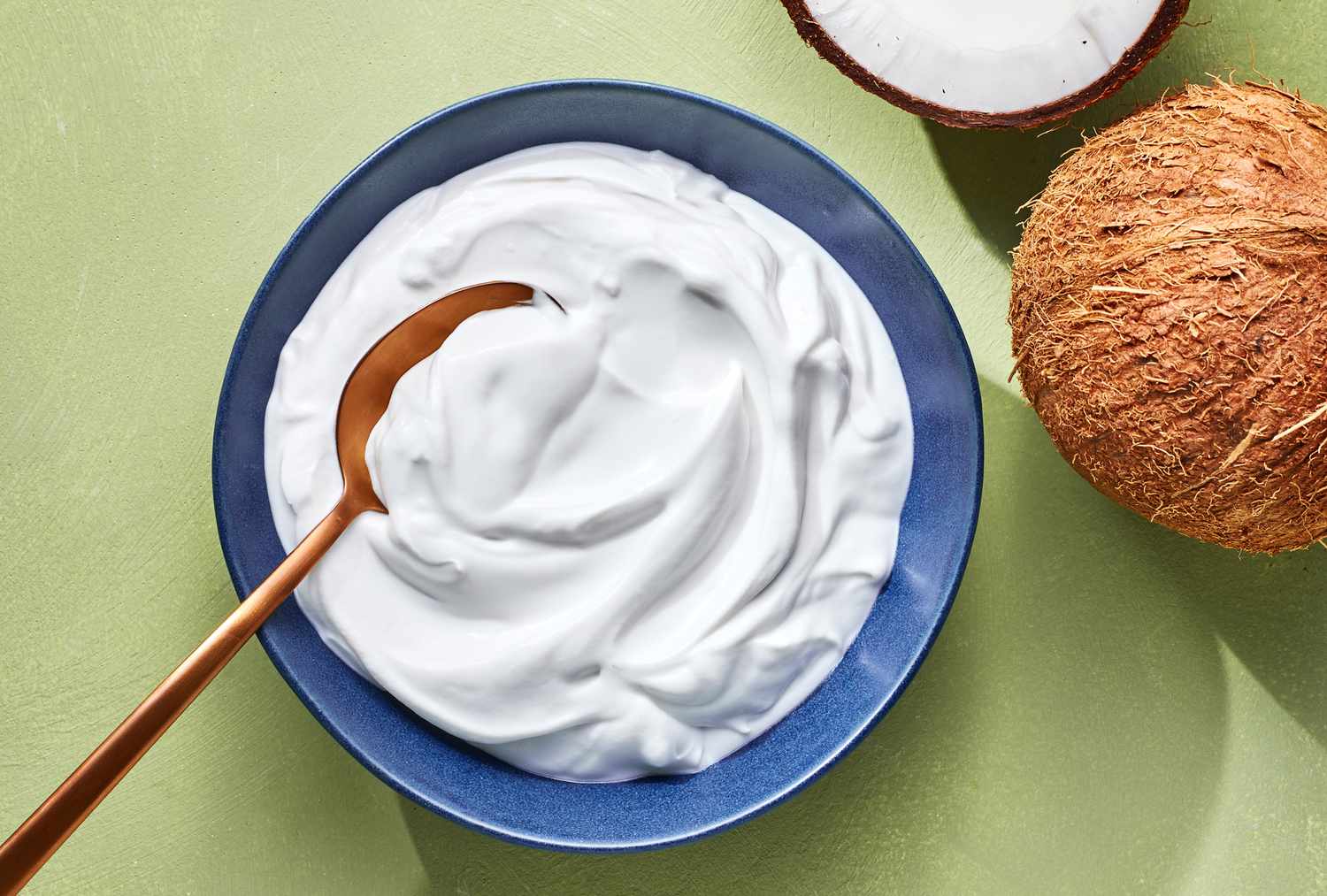
Coconut cream, the rich and creamy extract derived from mature coconuts, has become a popular ingredient in various culinary delights. Its luscious texture and unique flavor make it a versatile addition to both sweet and savory dishes, elevating the taste and adding a tropical twist. But there’s more to coconut cream than just its deliciousness. In this article, we will uncover 16 fascinating facts about coconut cream, shedding light on its nutritional benefits, culinary uses, and interesting trivia. So, whether you’re a coconut cream aficionado or simply curious to learn more, keep reading to discover the wonders of this exotic ingredient.
Key Takeaways:
- Coconut cream is a versatile, dairy-free ingredient with high healthy fat content, perfect for both sweet and savory dishes, and can even be used as a moisturizer for your skin.
- Whether in curries, desserts, or cocktails, coconut cream adds a rich and creamy tropical twist to your favorite recipes, making it a popular choice in many culinary traditions worldwide.
Coconut cream is extracted from mature coconuts.
Obtained from the flesh of mature coconuts, coconut cream is created by squeezing or pressing the shredded coconut meat to extract the creamy liquid.
It has a high fat content.
Coconut cream is characterized by its high fat content, which gives it a luxurious and creamy consistency. This makes it an excellent dairy-free alternative in various recipes.
Coconut cream is a staple in Southeast Asian cuisine.
In Southeast Asian countries like Thailand and Indonesia, coconut cream is commonly used in curries, soups, and desserts, adding a rich and indulgent flavor.
It can be used in both sweet and savory recipes.
From creamy coconut-based curries to luscious coconut cream pies, this versatile ingredient can enhance both sweet and savory dishes with its unique taste and texture.
Coconut cream is a great source of healthy fats.
While it is high in saturated fats, coconut cream also contains medium-chain triglycerides (MCTs), which are known for their potential health benefits, including improved brain function and increased energy levels.
It can be whipped into a delicious dairy-free whipped cream substitute.
With its thick consistency, coconut cream can be chilled and whipped into a fluffy and decadent topping that can accompany your favorite desserts.
Coconut cream can be used in cocktails and smoothies.
Adding a splash of coconut cream to your favorite tropical cocktail or smoothie can give it a creamy and tropical twist, making it a delightful treat.
It is commonly used in vegan and plant-based recipes.
Coconut cream is a popular ingredient in vegan and plant-based recipes, serving as a creamy and dairy-free substitute in various dishes.
Coconut cream can be made at home.
While it is readily available in canned form, coconut cream can also be made at home by blending fresh coconut meat with water and straining it to extract the creamy liquid.
It is a common ingredient in Thai curry pastes.
Thai curry pastes often feature coconut cream as one of their key components, providing a rich and creamy base for the flavorful spices and ingredients.
Coconut cream can be used as a moisturizer.
Due to its high fat content, coconut cream can be applied topically as a natural moisturizer, leaving your skin feeling hydrated and nourished.
It can be used in baking.
Coconut cream adds a delightful tropical flavor to baked goods such as cakes, cookies, and muffins, making them moist and flavorful.
Coconut cream is often used in traditional Asian desserts.
In countries like Thailand and Malaysia, coconut cream is a common ingredient in traditional desserts such as sticky rice with mango and coconut ice cream.
It can be used as a base for creamy soups.
Coconut cream serves as a delicious and velvety base for creamy soups, providing richness and depth of flavor.
Coconut cream is lactose-free.
For individuals who are lactose intolerant or have a dairy allergy, coconut cream is a great alternative as it is naturally free from lactose.
It can be stored for an extended period.
Coconut cream can be kept in the refrigerator for up to two weeks, and if unopened, it can be stored at room temperature for an even longer period.
In conclusion, coconut cream is a versatile and delicious ingredient that can enhance a wide range of dishes and recipes. From its rich and creamy texture to its numerous health benefits, it is no wonder why coconut cream is a popular choice in many culinary traditions around the world. Whether you use it in curries, desserts, beverages, or even skincare, coconut cream is a true tropical delight!
Conclusion
Coconut cream is not only delicious but also packed with amazing health benefits. From helping with weight loss to promoting heart health, this versatile ingredient has so much to offer. Whether you use it in recipes or as a substitute for dairy products, coconut cream is a great addition to your diet.Remember, moderation is key when consuming coconut cream as it is high in calories and saturated fat. Incorporate it into your meals mindfully and enjoy its unique flavor and texture. So go ahead, indulge in the creamy goodness of coconut and experience its many wonders!
FAQs
1. Is coconut cream the same as coconut milk?
No, coconut cream and coconut milk are not the same. Coconut cream is thicker and richer in texture compared to coconut milk. It is made by simmering coconut flesh in water, whereas coconut milk is a mixture of coconut cream and water.
2. Is coconut cream suitable for vegans?
Yes, coconut cream is suitable for vegans as it is derived from coconuts, which are plant-based. It can be used as a dairy-free alternative in various recipes, such as curries, desserts, and smoothies.
3. Can coconut cream help with weight loss?
Coconut cream contains medium-chain triglycerides (MCTs), which have been shown to increase feelings of fullness and potentially aid in weight loss. However, it is important to consume coconut cream in moderation due to its calorie content.
4. How to store coconut cream?
After opening a can of coconut cream, transfer any unused portion to an airtight container and store it in the refrigerator. It can last for up to a week. If you have homemade coconut cream, it is best to use it fresh and refrigerate any leftovers promptly.
Coconut cream's versatility extends beyond these 16 facts, offering a world of culinary possibilities and intriguing tidbits. From celebrating National Coconut Cream Pie Day on May 8th to exploring the nutritional aspects of Pia Coladas and uncovering surprising facts about this tropical cocktail, there's always more to learn. Delve deeper into coconut cream's delightful universe and expand your knowledge with our captivating articles.
Was this page helpful?
Our commitment to delivering trustworthy and engaging content is at the heart of what we do. Each fact on our site is contributed by real users like you, bringing a wealth of diverse insights and information. To ensure the highest standards of accuracy and reliability, our dedicated editors meticulously review each submission. This process guarantees that the facts we share are not only fascinating but also credible. Trust in our commitment to quality and authenticity as you explore and learn with us.


